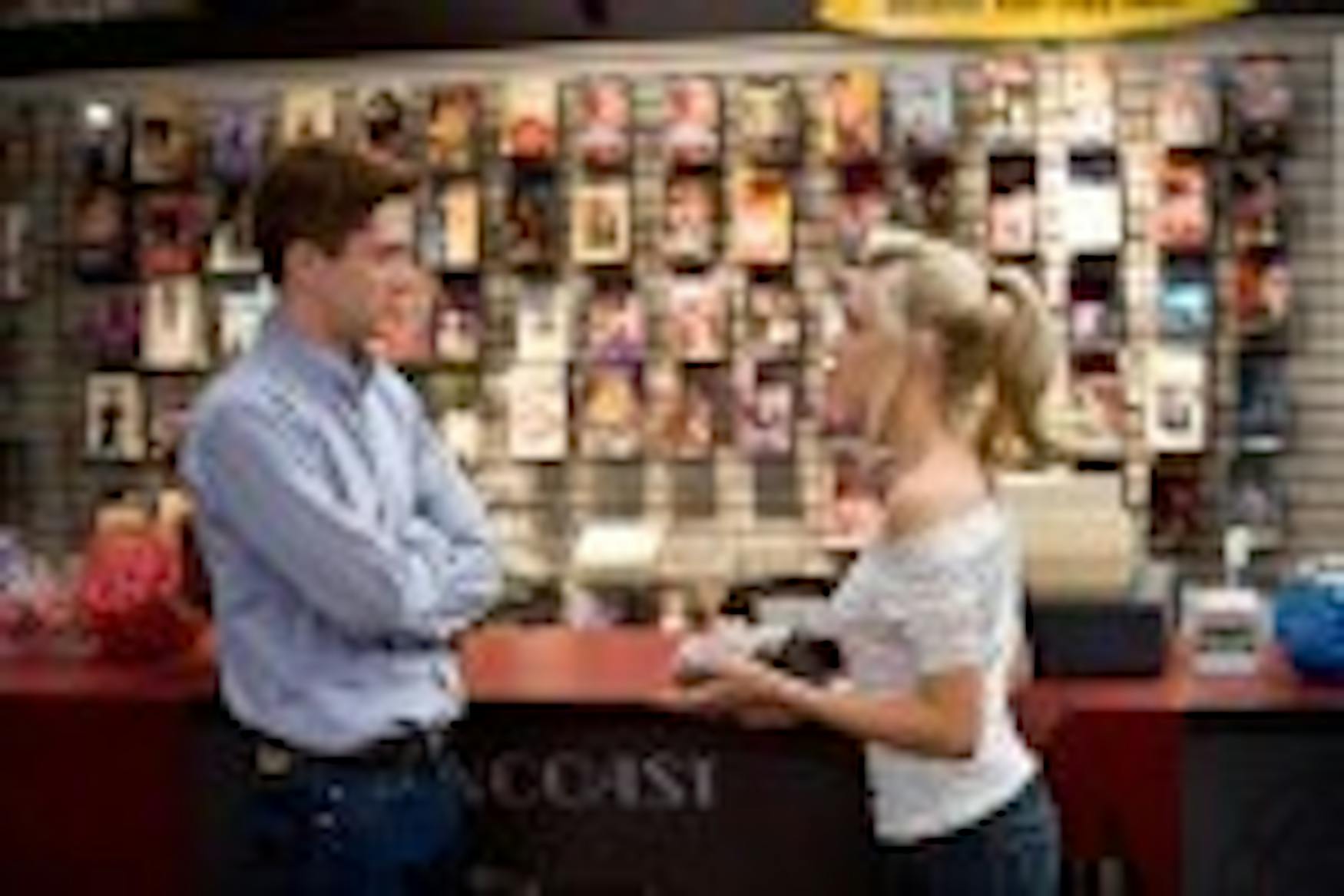No saving Grace for '80s revival flick
The 1980s were a time of rock and roll, outlandish hairstyles and a thriving dance scene. These trends were reflected in that decade's movies-but film naturally progressed as time passed. No one complained, and everyone was perfectly happy to let the 80s rest in peace. Except, apparently, Topher Grace and producer/co-writer Gordon Kaywin. In 2011-no less than 30 years after the end of the '80s-the two decided to resuscitate the era with their film Take Me Home Tonight, a flick Grace proudly refers to as an 80s relic, a movie that should feel as if it was made in the 80s, left in a vault for 30 years and released today.
That would have been a fantastic idea had he and Kaywin presented a story that was relatable and timeless, with a solid plot and believable characters. Unfortunately, Tonight offers absolutely none of these elements. The plot is paper thin, the characters are uninteresting and obnoxious, and the film's message is lost in the mess of absurdity that the characters find themselves in.
Tonight, from a story devised by Grace and Kaywin and a script written by That '70s Show veterans Jeff and Jackie Filgo, revolves around Matt Franklin (Grace). He is a college graduate who has no idea what he wants to do with his life and has ended up working behind the counter of a Suncoast video store. In the midst of his glum life, Franklin's high school crush, Tori Frederking (Teresa Palmer), winds up in his store and he, in a blind panic, ends up pretending that he's a high-level banker in order to impress her. Tori, a financial worker herself, reveals that she's going to a house party that happens to be thrown by Franklin's sister Wendy's (Anna Faris) boyfriend. Franklin jumps at the chance to spend time with her and decides to attend the party as well. Franklin recruits his best friend Barry (Dan Fogler), a recently fired used-car salesman, and together the two hijack the best-looking car they can find and head out to the party, where crazy shenanigans ensue.
This premise, though potentially a recipe for a fun movie, is quickly ruined by poorly written characters and even more horridly written dialogue. This dialogue is sometimes meant to be awkward, but often plays out so badly that it's impossible to look at the characters as normal human beings. Take, for example, the scene where Franklin hesitantly approaches Frederking during the party, entering into her conversation with another guy with an ill-timed laugh, and from there proceeding to make a fool out of himself by referring to the weather-over and over again. He manages to beat an already-stale cliché to death-dragging out his awkward weather-related comments with strange pauses and an ungodly slow speech-to the point where not only are the other characters staring at him with a mix of confusion and horror, but so is the audience.
These dialogue bits are just the icing on the (stale) cake. There are moments of unbelievable absurdity in the film, thanks for the most part to the absolutely horrendous character of Barry-a totally obnoxious, overweight blowhard: the character does nothing but run around, scream, snort cocaine, engage in an absurd dance-off and do other stereotypical fat-guy things. He is completely unlikable in every way, and he's not funny in the slightest. To outline the character's errant stupidity, one just has to look at the aforementioned dance-off scene. In this scene, Barry, while high on cocaine, counters his talented competitor by doing some sort of grotesque thrusting movement, hopping around peculiarly and proceeding to kick his competitor in the balls twice before screaming obnoxiously and running away. Did the writers expect us to find this funny? Perhaps if the audience they were looking to attract was kindergarteners.
In the end, Take Me Home Tonight proves to be a disappointing venture back into the '80s with very little reason to actually exist (although frankly, the movie's setting has no bearing on the story whatsoever, and it would be equally appalling in any time period). The plot becomes lost in moments of absolute absurdity, distorting and overwhelming any chance for the movie to deliver a sensible message. There appears to be a message of "finding yourself" somewhere among the mess and the idea that it's okay if you don't know what you want to do with your life. In fact, the funniest moment in the movie is the end credits, which begin with a fake sequence listing every credited worker's occupation as "TBA"--but it was a sequence that should have followed a much funnier movie.
Despite the awful turnout, I believe that Grace and Kaywin had the best of intentions when they came up with the idea for this movie. It's just a shame that, in this case, those good intentions went so horribly wrong.



Please note All comments are eligible for publication in The Justice.